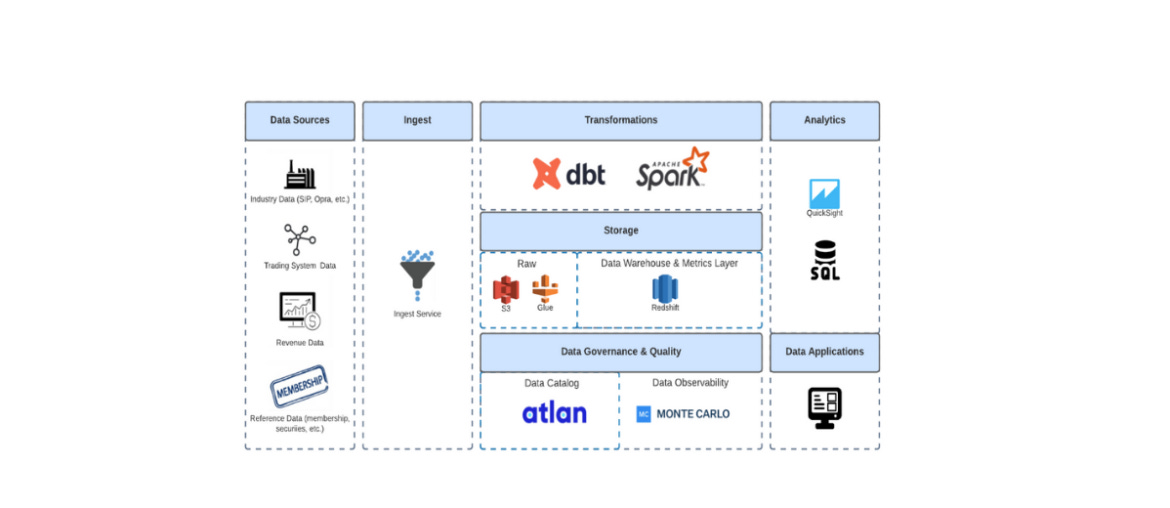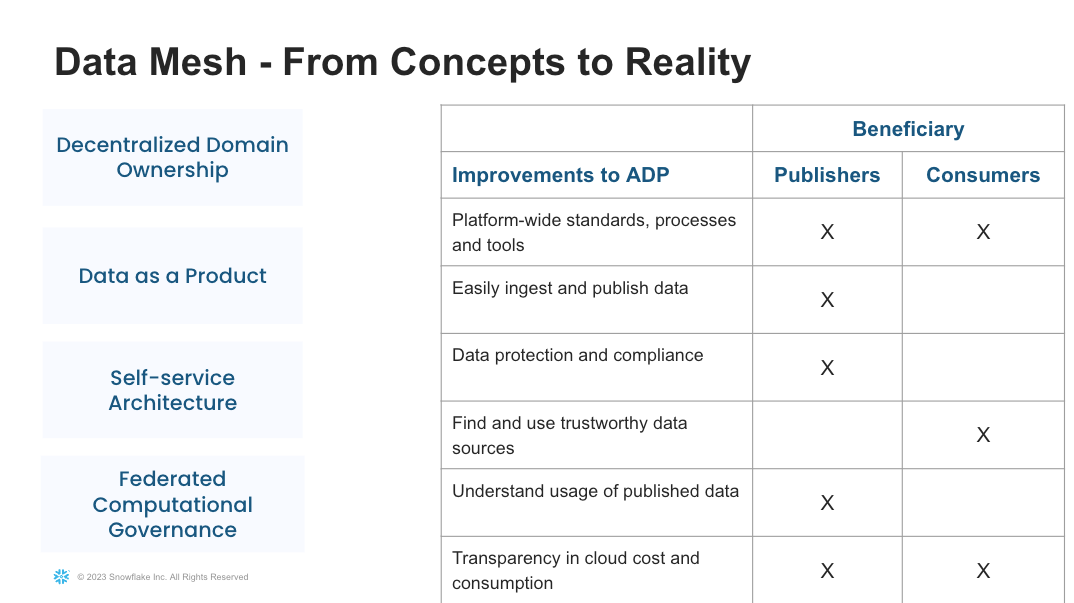Special Edition: Rethinking Data Governance with Modern Data Teams
Learn about modern data governance from data leaders at Autodesk, Elastic, Nasdaq, Porto, and more.
How to build a business case for a modern data platform?
Our traditional data catalog program failed, what should I do differently to make it succeed?
How do I evaluate a data catalog?
These are just a small sample of questions I heard in our last data leaders community dinner. The one thing learned speaking with dozens of data leaders at our last community event was that the data world is changing so quickly that many teams have to ‘‘figure it out on the go’’. But here’s the deal — there are a ton of resources, learnings, and experiences that already exist in the data community.
It’s just a matter of giving the best and brightest minds in the Atlan community a stage to share these hard-earned insights with their peers. So, that’s what we’ve done!
The Atlan team has been hard at work organizing the first community conference on modern data governance, Re:Govern! On October 5th, we’ll host half a day where an all-star lineup of teams like Autodesk, Elastic, Fox, HelloFresh, Nasdaq, and more exchange the real-life strategies and frameworks, templates, and resources that built the world’s best data governance programs.
I’ve had a chance to see some of the behind-the-scenes content as we prepare this conference for you, and I’m very impressed with the quality of insights being shared. So in this edition of the newsletter, we’re here to share a teaser for four of the amazing data teams joining us at Re:Govern.
Spotlight 1: Elastic’s Approach to Modern Data Governance Through Formalized Data Contracts
Elastic is a legendary technology company that powers search solutions, helps applications run smoothly, and protects against cyber threats for the world’s most respected organizations.
With a rich history in open source and an offering that’s built on a foundation of simplicity, speed, scale, and relevance, and powered by data, Elastic holds its Data & Analytics team to a high standard.
Elastic is distributed by nature, and its team is diverse across experience, geography, and culture, making it important that anything its data team creates and services is relevant and personalized across a spectrum of needs, expectations, and skills.
Their Data Governance strategy reflects this, guided by the principles of Transparency, helping people where data is and who owns it, Accountability, driving ownership, stewardship, and that stakeholders are accountable for the data they use, and Engagement, building a trusting, productive relationship with stakeholders.
Takashi Ueki (Director, Enterprise Data & Analytics) is joining us to share how Elastic is improving how they execute this strategy through formalized data contracts. Sign up for his session here →
Spotlight 2: Building a Business Case for Data Governance at Nasdaq
Nasdaq began its cloud journey with AWS back in 2012. As cloud adoption grew, and internal demand for data grew alongside it, Nasdaq’s data team began building their modern data stack to better meet the needs of their data consumers, implementing AWS, dbt, Monte Carlo, and Atlan over an 18-month modernization process.
Nasdaq operates over 30 exchanges across a variety of asset classes across the globe. They are home to over 4,100 publicly listed companies globally and 73% of all publicly listed tech companies in the US.
Rather than acting as a service center, Nasdaq’s central data team focuses on larger initiatives and acts as a coach and consultant to the teams they partner with. Moving away from a service-led model and into an enablement model demanded meaningful changes not just to their technology, but to team structures and operating models.
For a highly regulated organization like Nasdaq, this cultural, organizational, and technical change was no small feat! And leading the charge is Michael Weiss (Senior Product Manager) and his team, who have added Atlan to their modern data stack to drive education, collaboration, and data discovery.
Joining us at Re:Govern for this session, Michael will share not just his experience, but real-world frameworks and templates that helped him build the business case for a modern data governance practice.
Spotlight 3: Porto’s Migration from Legacy Data Catalog to Active Metadata Platform
The Data Governance team at Porto serves as somewhat of a central platform team, responsible for the myriad data ecosystems at Porto, and ensuring their data lakes and warehouses are well organized, well documented, compliant, and secure.
But the legacy data catalog that Porto once used meant that yielding the maximum possible ROI from their data stack, and achieving their data literacy goals, would be impossible.
Choosing Atlan as their new, modern data catalog, their team quickly got to work building Datapedia, a branded internal catalog whose goal is to democratize knowledge across Porto’s entire business.
Migrating all documentation and functionality from their legacy catalog into Atlan and launching to end users in just six weeks, Porto’s team has since automated the governance of over 1 million data assets, saving their 5-person team 40% of their time, and are nearly one-third of their way to 1,000 users of the tool by 2025!
Danrlei Alves is joining us at Re:Govern to share what it took to make the shift from legacy catalogs to a more modern approach to data governance with an active metadata platform. You can sign up and learn more about the session here →
Spotlight 4: Data Governance for Data Mesh Era at Autodesk
With over 14,000 employees and a revenue of $5 billion, Autodesk's 60 data teams revolutionized data collaboration and governance by constructing a data mesh framework.
By adopting a data mesh approach, Autodesk aims to empower every team within their organization to function as data publishers, responsible for ingesting and presenting data within their specific domains. Their state-of-the-art data infrastructure comprises AWS, Snowflake, Fivetran, dbt, Atlan, Looker, and Databand, forming the foundation for their data mesh.
Autodesk’s data mesh strategy rests on Zhamak Dehghani’s four principles:
Decentralized Domain Ownership: Each team controlled its data.
Data as a Product: Data was treated like a valuable product.
Self-service Architecture: Teams could manage their data on their own.
Federated Computational Governance: There were rules in place to keep things organized.
Mark Kidwell (Chief Data Architect, Autodesk) is joining Re:Govern to share how Autodesk's data mesh lets 60 different teams create, organize, and use their data more effectively. You can sign up for this session here →
I hope these stories have excited you enough to block your calendars on October 5th to join the community for a fun half-day filled with learning! You can check out the complete agenda and sign up here. :)
See you soon!





